Podcast: Play in new window | Download (Duration: 29:45 — 20.4MB) | Embed
Subscribe: Apple Podcasts | Spotify | Amazon Music | Android | Pandora | iHeartRadio | JioSaavn | Podchaser | Gaana | Podcast Index | Email | TuneIn | Deezer | Anghami | RSS | More

Episode 4 – Mary the New Tent of the Meeting and Mary the New Ark of a New Covenant
In this episode we look at Papal Infallibility and how it relates to Mary. Beginning with our first Pope, Peter, there has been an unbroken succession of apostolic authority. A dogma is declared infallible only when three criteria are met: the pronouncement must be made by the lawful successor of Peter; the subject matter must be in the area of faith and morals; the pope must speak ex-cathedra, that is from the office and seat of Peter. Papal infallibility has been invoked for only two dogmas of the Church: the immaculate conception of Mary (Pius IX in 1854) and the bodily assumption of Mary (Pius XII in 1950).
We return to Luke 1 and the story of the Annunciation to Mary. When the angel declares to Mary that she will conceive and bear a son, she wonders how this could be since she had no relations with a man. John Paull II explains her response by saying that Mary had the intention of forever being a virgin. The angel replies by saying that Mary will be overshadowed by the Holy Spirit. The Greek for overshadow is “episkiasei.” This word is used only one other time in the New Testament in Matthew 17 when at the Transfiguration the when Jesus and the apostles were Moses and Elijah were overshadowed by a cloud from which the voice of God could be heard. “Episkiasei” implies the divine true presence of God, and in the Old Testament, this word is only used in reference to the tent of the meeting, the Ark of the Covenant, and the Tabernacle, where the true presence of God was kept. The Ark of the Covenant was powerful and could not be touched without dire consequences. Just as the old Ark of the Covenant could not be touched, neither could the new Ark of the Covenant, Mary. Mary was perpetually a virgin. Like the Ark of the Covenant, Mary housed the true presence of God in her Womb.
Sharon Doran serves as the teaching director of “Seeking Truth.” An experienced Bible Study teacher, Sharon has a passion for scripture that will motivate and challenge you to immerse yourself in God’s Word and apply His message to your everyday life.
For more in this series visit the Seeking Truth with Sharon Doran Discerning Hearts page
“Seeking Truth” is an in-depth Catholic Bible Study, commissioned by the Archdiocese of Omaha in response to John Paul II’s call to the New Evangelization as well as Pope Benedict XVI’s exhortation for all Catholics to study scripture. To learn more go to: www.seekingtruth.net

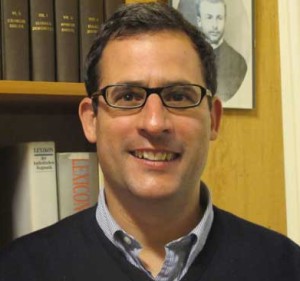 Episode 4 – “A Handmaid of the Lord – Mary/Joseph, Mary/John” – “A Handmaid of the Lord”: The life and legacy of Adrienne von Speyr with Dr. Adrian Walker, Ph.D.
Episode 4 – “A Handmaid of the Lord – Mary/Joseph, Mary/John” – “A Handmaid of the Lord”: The life and legacy of Adrienne von Speyr with Dr. Adrian Walker, Ph.D.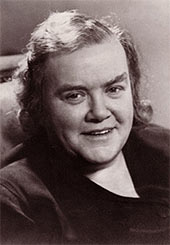 Adrienne von Speyr was a Swiss convert, mystic, wife, medical doctor and author of over 60 books on spirituality and theology. She’s inspired countless souls around the world to deepen their mission of prayer and compassion. She entered the Catholic Church under the direction of the great theologian, Hans Urs von Balthasar. In the years that would follow, they would co-found the secular institute, the Community of St. John.
Adrienne von Speyr was a Swiss convert, mystic, wife, medical doctor and author of over 60 books on spirituality and theology. She’s inspired countless souls around the world to deepen their mission of prayer and compassion. She entered the Catholic Church under the direction of the great theologian, Hans Urs von Balthasar. In the years that would follow, they would co-found the secular institute, the Community of St. John.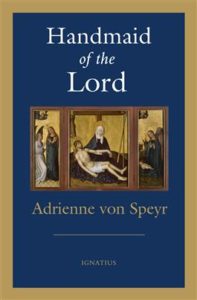
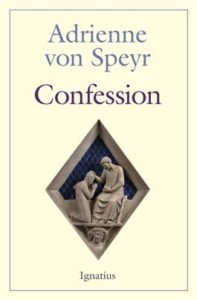
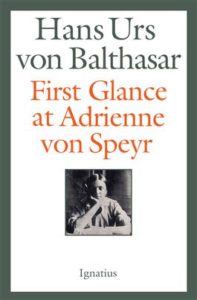
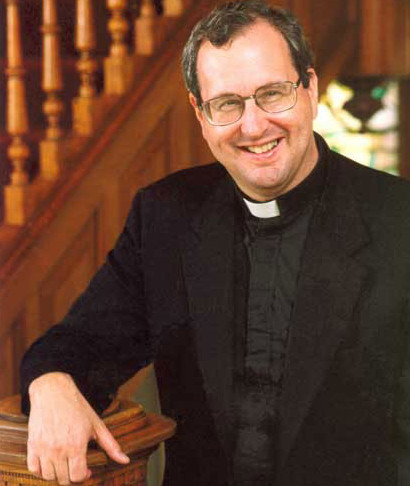 Destiny from the Revelation of Jesus“, which is the third installment of his “Happiness, Suffering, and Transcendence” series. Not only is Fr. Spitzer a brilliant theologian, but he has the heart of caring pastor who understands the needs of the questing minds of so many lost and wandering souls. With an extraordinary grasp of philosophy, theology and cosmology, he is able to take complicated concepts and mix them with joy, beauty, and a grace-filled enthusiasm without doing damage to the subject matter. In this volume, he addresses “What is LOVE”, “Who is LOVE”, and maybe in an even deeper way, “The why of LOVE”. Of course we know, “God is Love”, but God as a Father? God as a Son? God as Holy Spirit? How is the mind to grasp such penetrating Truth? And more importantly, how is the heart to perceive this eternal divine mystery?
Destiny from the Revelation of Jesus“, which is the third installment of his “Happiness, Suffering, and Transcendence” series. Not only is Fr. Spitzer a brilliant theologian, but he has the heart of caring pastor who understands the needs of the questing minds of so many lost and wandering souls. With an extraordinary grasp of philosophy, theology and cosmology, he is able to take complicated concepts and mix them with joy, beauty, and a grace-filled enthusiasm without doing damage to the subject matter. In this volume, he addresses “What is LOVE”, “Who is LOVE”, and maybe in an even deeper way, “The why of LOVE”. Of course we know, “God is Love”, but God as a Father? God as a Son? God as Holy Spirit? How is the mind to grasp such penetrating Truth? And more importantly, how is the heart to perceive this eternal divine mystery?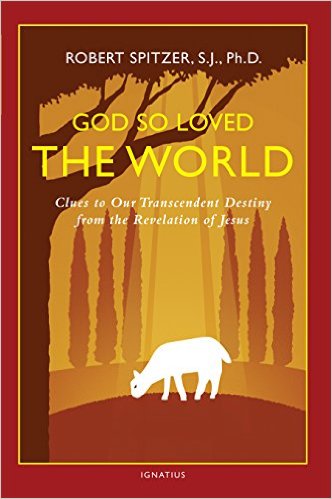


 Dr. Lilles continues the spiritual explorations of the Letters of St. Elizabeth of the Trinity. In this episode we discuss letter 269. In this special letter, only months before her death, Elizabeth sends this letter to her sister Marguerite:
Dr. Lilles continues the spiritual explorations of the Letters of St. Elizabeth of the Trinity. In this episode we discuss letter 269. In this special letter, only months before her death, Elizabeth sends this letter to her sister Marguerite:

